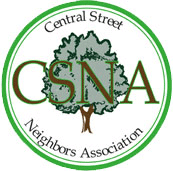Zoning process changes matter
Over last weekend, CSNA learned of a potentially significant change to Evanston law lurking in an obscure agenda item of the Rules Committee. A legal department memo proposed concepts ranging from bypassing the Planning and Development Committee altogether for certain zoning decisions (such as granting special uses and variations, or approving large projects called planned developments), to preventing the City Council from reviewing the Land Use Commission decisions at all, requiring anyone dissatisfied to go to court. CSNA, after polling its Board, urged hitting the pause button on this. My individual remarks prepared for the Committee are as follows.
Chairman Nieuwsma and members of the Committee:
Zoning decisions have a constitutional dimension.
People make consequential financial and life decisions based on what can be done with their property and nearby properties. Buying, selling, or rehabbing a home or business is not as simple as changing brands of toothpaste.
So zoning and zoning changes, which are not powers inherent to municipalities but granted by state statute, are required to afford due process to those with property interests at stake, otherwise it can be an unconstitutional taking.
There are pros and cons to multiple levels of process, and to process before elected and political bodies v. unelected and unaccountable bodies. You’d expect a memo on a topic this momentous to discuss constitutionality, due process, transparency, and at bottom, what is fairest for the parties affected, and what will result in the best decision-making on behalf of the residents of Evanston who the Council, mayor, and boards and commissions serve.
Instead, the report to this Committee dismayingly focuses only on issues of convenience like “hard start times” and making a better record for when the City is sued.
We’ve already had too much truncation of resident rights and due process, such as setting arbitrary cumulative comment limits, or dissolving the ZBA. There are procedural options beyond those in the memo. No new option should be chosen (and I agree with CSNA that Option 2 should be rejected) until this Committee has been adequately briefed on, and had the fuller discussion, that this important topic deserves.
Please note that these were my remarks as a resident, not on behalf of CSNA, as we had not had time to meet and agree on a formal statement; I will own any issues of tone or overstatement. Numerous other residents spoke, including CSNA Board member Jim Hughes who provided valuable insight into existing Code. No public comments favored a major change. Ultimately, the consensus of the Committee was to work toward codifying existing practice. However, a fuller conversation still needs to occur, as there have been numerous instances where stakeholders rtanging from residents to developers have been unhappy with the way decison-making has played out in Evanston.
- jeffpsmith's blog
- Log in to post comments
